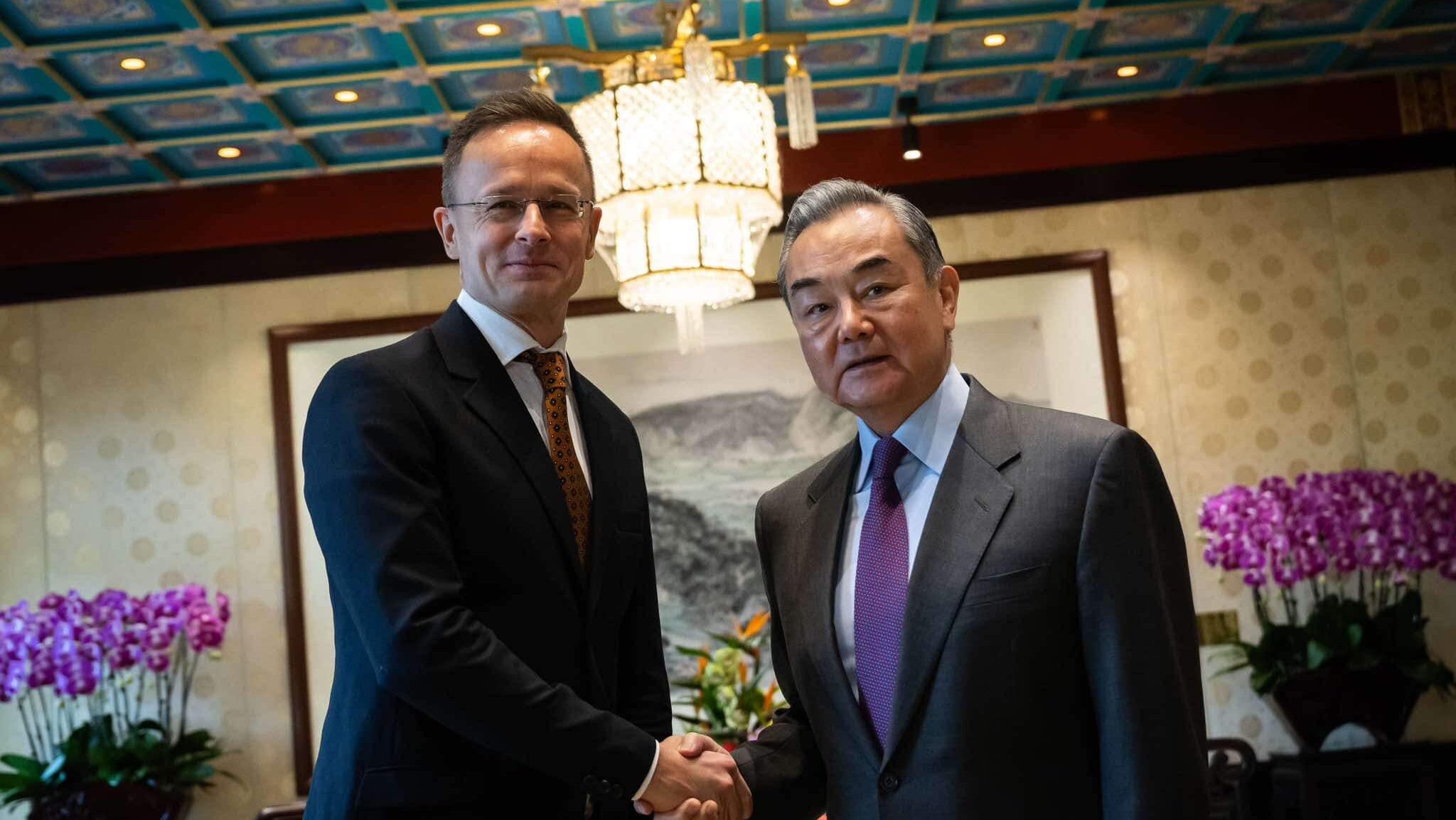On Tuesday Hungarian Minister of Foreign Affairs and Trade Péter Szijjártó travelled to Beijing, where he held discussions with his Chinese counterpart, Wang Yi. In addition to his meeting with the foreign minister, Szijjártó engaged with the leaders of several Chinese companies investing in Hungary and successfully finalized an agreement pivotal to future cooperation.
‘Sino–European cooperation could reach an entirely new dimension through the harmonization of Eastern and Western payment systems, a goal achievable with Hungary’s active participation,’ Szijjártó announced. The minister revealed that Hungary’s Cardnet and China’s Macau Pass had signed an agreement to establish a payment platform linking Chinese and European payment and settlement systems.
Szijjártó also highlighted the increasing number of Chinese tourists visiting Hungary, facilitated by 21 weekly flights connecting major Chinese cities to Budapest. At the same time, many Hungarians are taking advantage of visa-free travel to China. ‘Tourism has increased in both directions, and I believe that establishing a common payment platform will further enhance the appeal of visiting each other’s countries,’ he said.
‘Hungary’s Cardnet and China’s Macau Pass signed an agreement to establish a payment platform linking Chinese and European payment and settlement systems’
He described the agreement between Cardnet and Macau Pass as a pivotal milestone, highlighting that it would significantly simplify payment processes for both Hungarian and Chinese citizens travelling between the two countries. ‘As a result, I anticipate further growth in tourism between China and Hungary,’ he concluded.
Following his discussions with Wang Yi, the Hungarian foreign minister emphasized that Hungary has become the top destination for Chinese investments in Europe, with 44 per cent of the East Asian country’s investments in the region directed to Hungary last year. ‘The Chinese and Hungarian governments both attach equal importance to the development of this cooperation…Hungary has already benefited greatly from this partnership, and it is encouraging that the Chinese government intends to sustain this high level of cooperation in the future,’ he said.
The Hungarian FM welcomed the comprehensive strategic partnership between the two countries, noting that its positive results are evident on a daily basis. He added that Chinese companies feel at home in Hungary, attributing this to the country’s strategy of economic neutrality, which accommodates both Eastern and Western investments.
8.4K views · 494 reactions | Ez magáért beszél👍🏻👍🏻👍🏻 | Szijjártó Péter
Ez magáért beszél👍🏻👍🏻👍🏻.
‘We don’t discriminate against any investor just because they come from a different part of the world. All investors who respect Hungarian laws and regulations are welcome to operate in Hungary,’ he said.
Szijjártó noted that there are currently more than HUF 4,000 billion worth of major Chinese investments in Hungary, which are expected to create tens of thousands of jobs and serve as a foundation for economic growth in the coming years.
The Hungarian FM underlined that relations between the European Union and China should be grounded in pragmatism. In this context, he criticized the tariffs imposed on the Chinese electric car industry, warning that they pose risks to European competitiveness and the overall economy. ‘My Chinese counterpart has made it clear that they support negotiations, aiming to use dialogue to improve and strengthen EU–China cooperation. I believe the European Union cannot shy away from these discussions,’ Szijjártó cooncluded.
Related articles:








